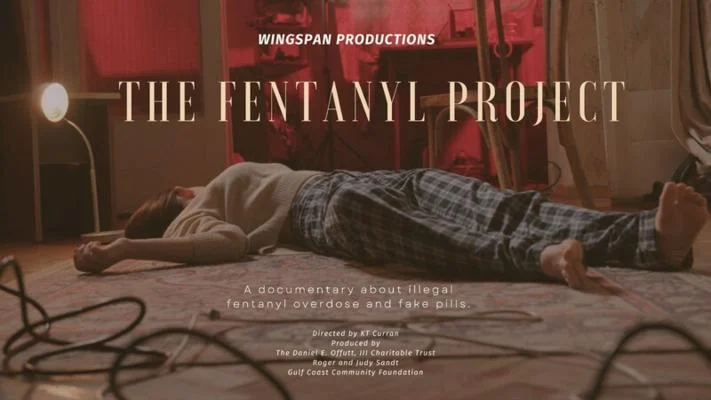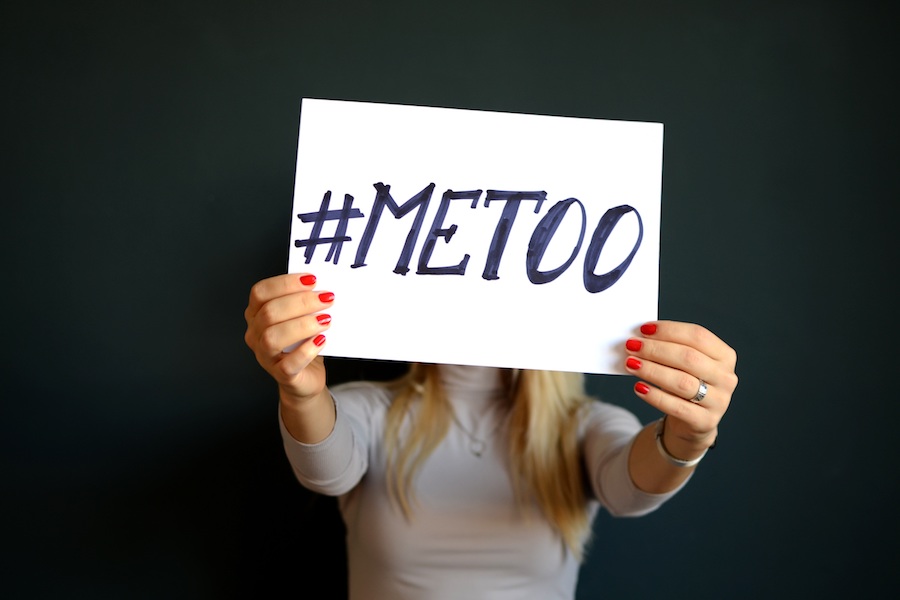The effects and misconceptions of sexual assault
April was Sexual Assault Awareness Month, but we need to remain aware throughout the year. Maddie Cashen’s guest op/ed addresses sexual assault, its effects, and its brave survivors.
The “Me Too” movement, founded in 2006 by Tarana Burke, has sparked significant conversation and activism about sexual assault.
“I believe you.” Those are the words every survivor needs to hear as they drown under waves of emotional trauma and uncertainty about their own truth. That “I believe you” is the support and validation from another person, the hand reaching out to pull them from the water. And yet, many people are hesitant to offer those words, due to the stigma and misinformation about sexual assault.
Sexual assault isn’t talked about enough. It is a difficult topic, but it is far too common and horrible to avoid. Neglecting to give or receive information about sexual assault propagates a culture that supports these crimes to continue without punishment. The more we talk about it, the more we fight the stigma.
Any non-consensual sexual contact or behavior is considered sexual assault, including rape, attempted rape, molestation, coerced consent, and many other acts of violence. Consent must be informed, reversible, enthusiastic, specific, and sober. If consent does not follow all of those guidelines during a sexual act, it is assault.
It happens to everyone, everywhere. According to the CDC’s National Intimate Partner and Sexual Violence Survey (NISVS), about 1 in 3 women and 1 in 6 men experience sexual assault in their lifetime. However, according to the Rape, Abuse, and Incest National Network (RAINN), only 5 out of every 1000 perpetrators will receive a felony conviction.
The effects of sexual violence on survivors go far beyond a survey or percentage. Survivors are not only victims of the physical and violent violation of their bodies; they experience psychological and emotional turmoil that never truly leaves.
These effects stem from the acute stress response, also known as the “fight or flight” mechanism. When confronted with a stressful event, the amygdala, the part of the brain responsible for emotional memory and processing, sends a distress signal to the hypothalamus, the command center of the brain. It activates the “fight or flight” response, a burst of energy that helps the body respond to the danger. The adrenaline produced to provide this energy circulates throughout the body, prompting responses including elevated blood pressure and pulse rate, shortness of breath, and sharpened senses.
After a sexual assault or other traumatic event, the emotional memory is stored in the amygdala. When something reminds a survivor of their assault, the amygdala remembers the emotional distress and fear. It activates the “fight or flight” response again, even though there is no real danger. This often leads to survivors experiencing flashbacks, when a past sexual assault feels like it is happening in the present moment. It also induces panic attacks, intense sudden fear with symptoms such as nausea, shakiness, and a sense of doom.
A “trigger” is the term used to describe the stimulus that causes these effects. They can be anything that reminds the survivor in some way of their assault, and they often aren’t immediately discernible.
This is partly due to the effect trauma has on the hippocampus, the part of the brain responsible for visual memory storage. Studies have shown that post-traumatic stress disorder (PTSD) can cause the hippocampus to shrink, and that the brain tries to block out the painful memories of trauma. Occasionally, the brain will completely repress the memory, and a survivor may not remember their trauma until something later in their life triggers it to resurface.
Also, due to the effects trauma has on the brain, survivors’ memories of the assault are often muddled and confused. They may contradict themselves when telling their story, because their memories resurface at different times. This is part of the reason why many survivors aren’t believed; people that don’t understand the effects of trauma mistake confusion for lies.
PTSD does more than repress memories; it causes flashbacks, nightmares, avoidance, and hyper-arousal. Almost every survivor experiences symptoms of PTSD in the weeks after an assault and continues to feel the effects of trauma throughout their life.
Anxiety and depression are also common among survivors. Anxiety attacks are preceded by hours or days of constant worrying, and the symptoms can continue long after. Depression often manifests itself in hopelessness and sudden outbursts of anger. There is a heightened likelihood of suicidal tendencies and drug abuse in survivors of sexual assault.
Many survivors experience a sense of shame after an assault because having their body violated causes them to feel soiled or unworthy of respect. They may also feel guilty, questioning whether they could have done something more to stop the assault.
These thoughts and emotions are misplaced; sexual assault is never the victim’s fault. Unfortunately, the feelings are reinforced by family, friends, and society as a whole.
Many myths surround sexual assault, including those such as “she was asking for it by the way she was dressed.” Our society and the people in it perpetuate these fallacies, and they support the idea that the victim was at fault for the assault. Placing blame on the victim is not only reprehensible; it supports the rape culture that allows these assaults to happen without consequences for the perpetrators.
Questioning a survivor’s story also causes them to feel guilty, because it makes them wrongly feel like a liar. Asking for any details or if it “really happened” violates their privacy, and it causes them to question their truth.
Because of the confusion of trauma and the reaction of skepticism from others after an assault, survivors often have trouble defining their own truth. It takes time for survivors to believe their own story, especially since the initial shock is hard to overcome.
Most survivors do not pursue the assault in court, but the majority of those that do don’t win. This is once again due to the rape culture rooted in our society, the “boys will be boys” or “he should want it” mantras that hinder survivors from receiving justice. When survivors are labeled as liars, many find it hard to define their truth.
Survivors have to go through many hardships, but there are solutions to these problems. You can help fight against sexual assault in many simple ways.
The first and foremost way you can help is to always believe survivors. Unfortunately, many people follow the baseless claim that most accusers are lying about their story. However, only 2-10% of sexual assault allegations are truly false. Rape culture protecting the perpetrators and the misinformation around sexual assault and trauma cause many survivors to be incorrectly labeled as liars. They have everything to lose and nothing to gain by coming forward, and true survivors do not lie about their story. If somebody decides to share with you, listen to them, and do not ask questions regarding the assault itself. Instead, ask how you can best support the survivor.
You can also donate to sexual assault prevention organizations. These operations provide support and resources for survivors, and they are working toward eradicating the rape kit backlog. Rape kits are the evidence collected after an assault, and they can help survivors win in court. However, there is a huge backlog, and many survivors don’t receive their evidence until years after the assault.
Finally, do your part to help end rape culture. Speak up if someone makes a rape joke or tries to demean a survivor’s truth. Your simple actions can help people become more aware of the gravity of sexual assault.
For survivors, there are many resources and 24-hour hotlines available for information and support. They are free to call, and they offer help by talking to you, guiding you to information, and aiding you in your recovery.
You’re in control now, and you are the one who gets to decide what to do. If you think you may want to pursue your assault in court, you should consider going to the hospital for a Sexual Assault Forensic Exam, a rape kit. This will aid you in gathering incriminating evidence. Many survivors don’t want to go through the pain of facing the perpetrator in court, because the aforementioned likelihood of a legal victory is slim. If you don’t want to go to court, that is perfectly fine. You are under no obligation to confront your attacker, and your truth is not diminished by refraining from legal action or losing a case.
Your story belongs to you, and you can decide who you wish to share it with. Telling people helps release some of the pressure, so you may consider sharing it with the friends and family you know you can trust to support you.
There are many forms of self-care that aid healing. These can be as simple as sleeping with a weighted blanket, journaling, and exercising. Grounding exercises can stop flashbacks and panic attacks. When you’re feeling bad, talking with a friend can help you calm down. Nightly routines can prevent nightmares, and setting boundaries with certain people and media will help you avoid triggers. Your health and healing after a traumatic event are paramount, so focus on yourself when you need to.
To any survivor reading this, you are incredibly brave and strong. I believe you.
















































Marie Harold • Jun 1, 2020 at 11:06 pm
I’m very happy to share my testimony of how i got cured of my ADHD, living with ADHD and Persistent depressive disorder as an adult really affected me and my life career. I was advice to seek for a spiritual cleansing and prayers, i was advice by my mothers friend to contact Priest Okojie from shango solution Temple prayed for me in his temple with my photo because my case was more than a physical battle and Priest Okojie handled it spiritually, breaking all evil powers and casting out the evil curses and after he was done within 3 days that was the end of my ADHD and persistent depressive disorder follow my anxiety and ever since then i have achieve so many things after he prayed and did spiritual cleansing for me in his temple, i’m more smarter and more brilliant than i use to be. If you suffering from ADHD, depression,Post-traumatic stress disorder, Generalized anxiety disorder, anxiety, bipolar disorder, stroke and other mental disorder i will advice you seek for spiritual assistance at Priest Okojie home of solution. (shangosolutiontemple @ yahoo . com